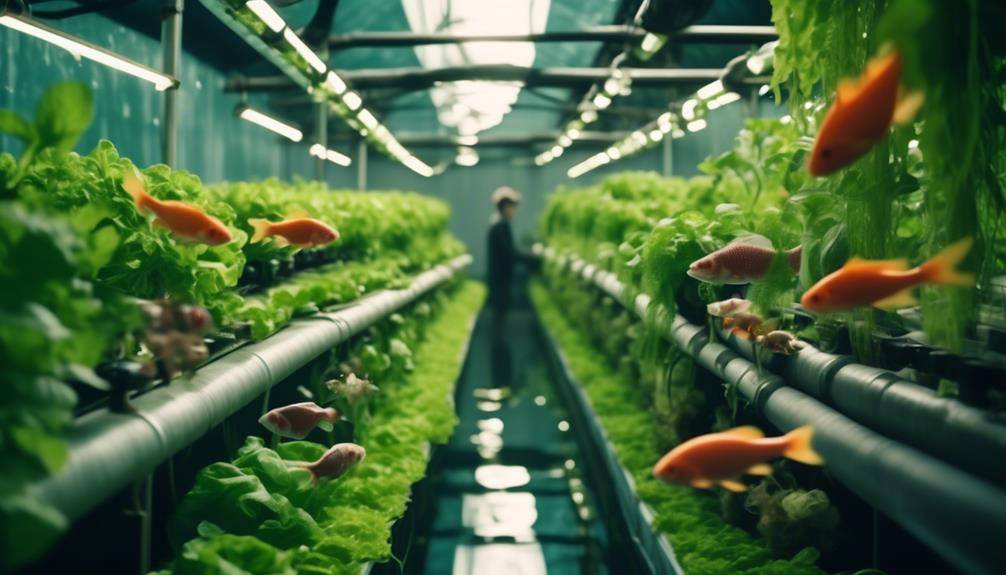Emerging Food Waste Reduction Strategies For Businesses

Waste Reduction Strategies For Businesses; Imagine your business as a bustling kitchen, with ingredients being carefully chosen and prepared, and plates filled with culinary masterpieces. Now, picture a portion of those creations being swept away into the garbage bin, a wasteland of missed opportunities and squandered resources. But fear not, for there is a way to transform this wasteland into a thriving oasis of efficiency and sustainability. In this discussion, we will explore food waste reduction strategies that can help your business not only save money but also make a positive impact on the environment and the community. So, get ready to unlock the secrets of minimizing waste and maximizing value in your culinary kingdom.
Conduct a Waste Audit
To effectively reduce food waste, it is essential to conduct a waste audit, allowing you to identify areas of improvement and develop targeted strategies. Waste management techniques and food disposal methods play a crucial role in this process. Conducting a waste audit involves a thorough assessment of your current waste management practices, from sourcing to disposal.
Start by tracking and documenting all the food waste generated in your business. This includes measuring the amount of food wasted during preparation, spoilage, and plate waste. By quantifying the waste, you can gain a clear understanding of the scale of the problem and identify patterns or trends.
Next, analyze the reasons behind the waste. Look for common factors such as overproduction, improper storage, or inadequate inventory management. This information will help you pinpoint the areas that require improvement and develop targeted strategies to address them.
Consider implementing waste reduction techniques such as portion control, menu planning, and staff training on proper food handling and storage. These measures can significantly minimize food waste and improve overall efficiency.
Additionally, explore alternative food disposal methods, such as composting or donating excess food to food banks or local charities. These initiatives not only reduce waste but also contribute to community welfare.
A waste audit is an ongoing process that requires continuous monitoring and adjustment. Regularly review and update your waste management strategies based on data collected during the audit. By conducting waste audits and implementing effective waste management techniques, you can significantly reduce food waste in your business and contribute to a more sustainable future.
Implement Proper Inventory Management
To effectively reduce food waste, it is crucial to implement proper inventory management in your operations. This involves efficient stock control and minimizing excess inventory. By closely monitoring your inventory levels and ensuring that you only order what you need, you can not only reduce the risk of food going to waste but also save on costs associated with excess stock.
Efficient Stock Control
Implementing proper inventory management is essential for efficient stock control and reducing food waste. Efficient stock management involves optimizing inventory levels to minimize waste and ensure that you always have the right amount of stock on hand. To achieve this, you need to establish a systematic approach to track and monitor inventory levels regularly. Start by conducting regular stock audits to identify slow-moving or expired items. This will help you make informed decisions about ordering and avoid overstocking or understocking.
Additionally, investing in inventory management software can streamline the process by providing real-time data on stock levels, sales trends, and reorder points. By implementing efficient stock control measures, you can prevent food waste, reduce costs, and improve overall operational efficiency.
Minimize Excess Inventory
Efficient stock control is crucial for minimizing excess inventory and implementing proper inventory management practices. To minimize waste and reduce surplus, businesses need to adopt effective strategies to manage their inventory levels. One approach is to implement a just-in-time inventory system, where products are ordered and received only when needed. This helps to prevent overstocking and reduces the risk of products expiring or spoiling before they can be sold. Additionally, businesses should regularly analyze their sales data to identify trends and adjust their inventory accordingly. This enables them to maintain optimal stock levels and avoid unnecessary waste. By implementing proper inventory management techniques, businesses can not only reduce food waste but also improve their overall efficiency and profitability.
Train Staff on Food Handling and Storage Practices
Staff training plays a crucial role in ensuring proper food handling and storage practices are followed. By providing food safety training to your staff, you can reduce the risk of contamination and food spoilage, ultimately minimizing food waste in your business. Here are some key points to consider when training your staff on food handling and storage practices:
- Proper storage procedures: Teach your staff about the importance of storing different types of food at the correct temperatures. This includes refrigeration, freezing, and dry storage. Emphasize the need to separate raw and cooked foods to prevent cross-contamination. Train them on the proper use of food storage containers, such as airtight containers, to maintain freshness and prevent spoilage.
- First-in, first-out (FIFO) method: Implement the FIFO method to ensure that older food items are used or sold first. Train your staff to rotate stock and label products with expiration dates to prevent the accumulation of expired or spoiled food. By following this method, you can reduce the chances of food waste and save money by utilizing inventory efficiently.
Incorporating these practices into your staff training program will help create a culture of food safety and waste reduction in your business. Regularly reinforce these procedures through refresher courses and provide resources, such as food safety manuals or posters, to serve as reminders. Encourage open communication among staff members to address any concerns or questions regarding proper food handling and storage. By investing in staff training, you can significantly reduce food waste and improve the overall efficiency of your business.
Optimize Portion Sizes and Menu Planning
Consider optimizing portion sizes and menu planning to reduce food waste and improve the efficiency of your business. Portion control plays a crucial role in minimizing food waste. By carefully measuring and controlling the amount of food served to customers, you can prevent over-portioning and unnecessary waste. Implementing portion control practices not only helps in reducing food waste but also contributes to cost savings and increased profitability.
Menu optimization is another effective strategy to minimize food waste. Analyze your menu offerings and identify items that consistently generate excess waste. Consider revising or removing these items from your menu to reduce waste. Additionally, you can introduce menu items that use ingredients that are already in stock or are at risk of spoiling. By doing so, you can ensure that all ingredients are utilized efficiently, minimizing waste.
Another approach to menu planning is to offer flexible portion sizes. Provide customers with options to choose smaller or larger portions based on their appetite. This way, you can better cater to their needs and preferences while reducing the likelihood of food being left uneaten.
Regularly reviewing and updating your menu based on customer feedback and sales data can also help in optimizing portion sizes and reducing waste. Monitor which dishes are frequently left unfinished and consider adjusting the portion sizes accordingly.
Establish Partnerships With Local Food Banks or Charities
Establishing partnerships with local food banks or charities can be a beneficial way to reduce food waste and contribute to the community. By working together with these organizations, businesses can not only help to feed those in need but also minimize the amount of food that ends up in landfills. Here are some partnership benefits and the community impact that can be achieved through such collaborations:
- Reduced food waste: Partnering with local food banks or charities allows businesses to redirect surplus food that would otherwise go to waste. Instead of throwing away excess food, it can be donated to these organizations, ensuring that it is put to good use and reaches those who need it most.
- Increased social responsibility: Aligning with local food banks or charities demonstrates a commitment to social responsibility. By donating food, businesses can help address the issue of food insecurity in their community and contribute to the overall well-being of their neighbors.
- Positive brand image: Engaging in partnerships with local food banks or charities can enhance a business’s reputation and create a positive brand image. Customers are increasingly looking for companies that are actively involved in making a difference in their communities, and supporting food rescue initiatives can help businesses attract and retain socially conscious consumers.
- Tax benefits: Donating food to registered food banks or charities can often qualify businesses for tax deductions or credits. These financial incentives can further motivate businesses to establish partnerships and contribute to the reduction of food waste.
Embrace Composting and Food Recycling Programs
Embrace composting and food recycling programs to reap the numerous benefits they offer. By composting organic waste, businesses can reduce their overall waste output and contribute to a more sustainable environment. In addition, implementing food recycling programs can help divert food waste from landfills and instead channel it towards beneficial uses such as creating renewable energy or producing nutrient-rich compost.
Composting Benefits Businesses
Businesses can greatly benefit from participating in composting and food recycling programs. Here are some reasons why composting benefits businesses:
- Environmental impact:
- Composting reduces the amount of food waste that ends up in landfills, which helps to reduce greenhouse gas emissions and combat climate change.
- By diverting food waste from landfills, businesses can contribute to the production of nutrient-rich compost that can be used to improve soil health and promote sustainable agriculture.
- Cost savings:
- Composting can help businesses save money on waste disposal fees, as diverting organic waste from landfill can be cheaper than sending it to a landfill.
- Additionally, businesses can reduce their purchasing and disposal costs by using compost instead of commercial fertilizers.
Implement Food Recycling Programs
By adopting food recycling programs such as composting and embracing sustainable practices, businesses can further reduce their environmental impact and save on waste disposal costs. Food recycling offers numerous benefits for businesses. Firstly, it helps divert organic waste from landfills, reducing greenhouse gas emissions and mitigating climate change. Secondly, businesses can use the compost produced as a natural fertilizer, reducing the need for chemical fertilizers and improving soil health.
Additionally, implementing food recycling programs can enhance a company’s public image and reputation as an environmentally responsible entity. However, there are challenges to consider when implementing food recycling programs. These include the need for proper infrastructure and equipment, employee training, and ensuring compliance with regulations. Despite these challenges, the long-term benefits of food recycling make it a worthwhile investment for businesses looking to reduce waste and contribute to a more sustainable future.
Reduce Waste Through Composting
To reduce waste and contribute to a more sustainable future, consider embracing composting and food recycling programs. Composting is a simple and effective way to reduce organic waste and create nutrient-rich soil for gardening and landscaping. Here are some composting techniques you can implement:
- Backyard composting: Use a compost bin or pile in your yard to decompose organic waste like fruit and vegetable scraps, coffee grounds, and yard trimmings.
- Vermicomposting: Set up a worm bin indoors or outdoors and let the worms break down food waste into rich compost.
Track and Analyze Food Waste Data for Ongoing Improvement
Consider utilizing data tracking and analysis methods to continuously improve your efforts in reducing food waste. Tracking and analyzing food waste data is crucial for identifying areas of improvement and implementing targeted solutions. By closely monitoring your food waste, you can gain valuable insights into patterns, trends, and potential causes. This data-driven approach allows you to make informed decisions and take proactive steps towards reducing waste.
Start by implementing a system for tracking and recording food waste. This can be as simple as maintaining a logbook or using digital tools specifically designed for food waste tracking. Ensure that all staff members are trained on how to properly record and categorize food waste. Regularly review the data to identify any significant trends or recurring issues.
Once you have gathered sufficient data, analyze it to identify areas where waste can be reduced. Look for patterns such as specific food items that are frequently wasted or certain times of the day when waste is highest. This analysis can help you pinpoint specific areas for improvement and guide your decision-making process.
Use the information gained from tracking and analysis to implement targeted strategies for waste reduction. For example, if you notice that a particular food item is consistently being wasted, consider adjusting your purchasing quantities or finding alternative uses for the excess. If waste is highest during specific times of the day, revise your production schedules or portion sizes accordingly.
Remember that food waste tracking and analysis is an ongoing process. Continuously monitor and analyze your data to assess the effectiveness of your waste reduction strategies and make necessary adjustments. By leveraging data to drive your efforts, you can continuously improve and optimize your food waste reduction initiatives.
Waste Reduction Strategies For Businesses; Frequently Asked Questions
How Can Businesses Effectively Track and Analyze Their Food Waste Data for Ongoing Improvement?
To effectively track and analyze your food waste data for ongoing improvement, utilize data analysis techniques and implement tracking systems. These tools will help you identify patterns and trends, allowing you to make informed decisions for waste reduction.
What Are Some Strategies Businesses Can Implement to Optimize Portion Sizes and Menu Planning?
To optimize portion sizes and menu planning, consider analyzing customer preferences, using data from previous sales to identify popular dishes. Adjust portion sizes accordingly and offer customizable options to cater to different appetites, reducing food waste and increasing customer satisfaction.
How Can Businesses Establish Partnerships With Local Food Banks or Charities to Donate Excess Food?
You can establish partnerships with local food banks or charities to donate excess food. This helps reduce waste and supports your local community. It’s a win-win situation that allows you to make a positive impact.
What Are Some Key Steps in Conducting a Waste Audit for Businesses?
To conduct a waste audit for your business, start by identifying areas where waste is generated. Then, measure and track the amount of waste produced. Finally, analyze the data and implement key waste reduction strategies to minimize waste and maximize efficiency.
What Are the Benefits of Embracing Composting and Food Recycling Programs for Businesses?
Embracing composting and food recycling programs in your business can bring numerous benefits. Reduce waste, save money, and improve sustainability. Success stories show how businesses have implemented these programs, creating a positive impact on the environment.
Conclusion
In conclusion, implementing food waste reduction strategies can greatly benefit businesses by reducing costs, improving efficiency, and demonstrating a commitment to sustainability. Conducting waste audits, managing inventory, training staff, optimizing portion sizes, partnering with local organizations, and embracing composting are all practical steps that businesses can take to minimize food waste. By tracking and analyzing data, businesses can continuously improve their waste reduction efforts and make a positive impact on the environment and their bottom line.








